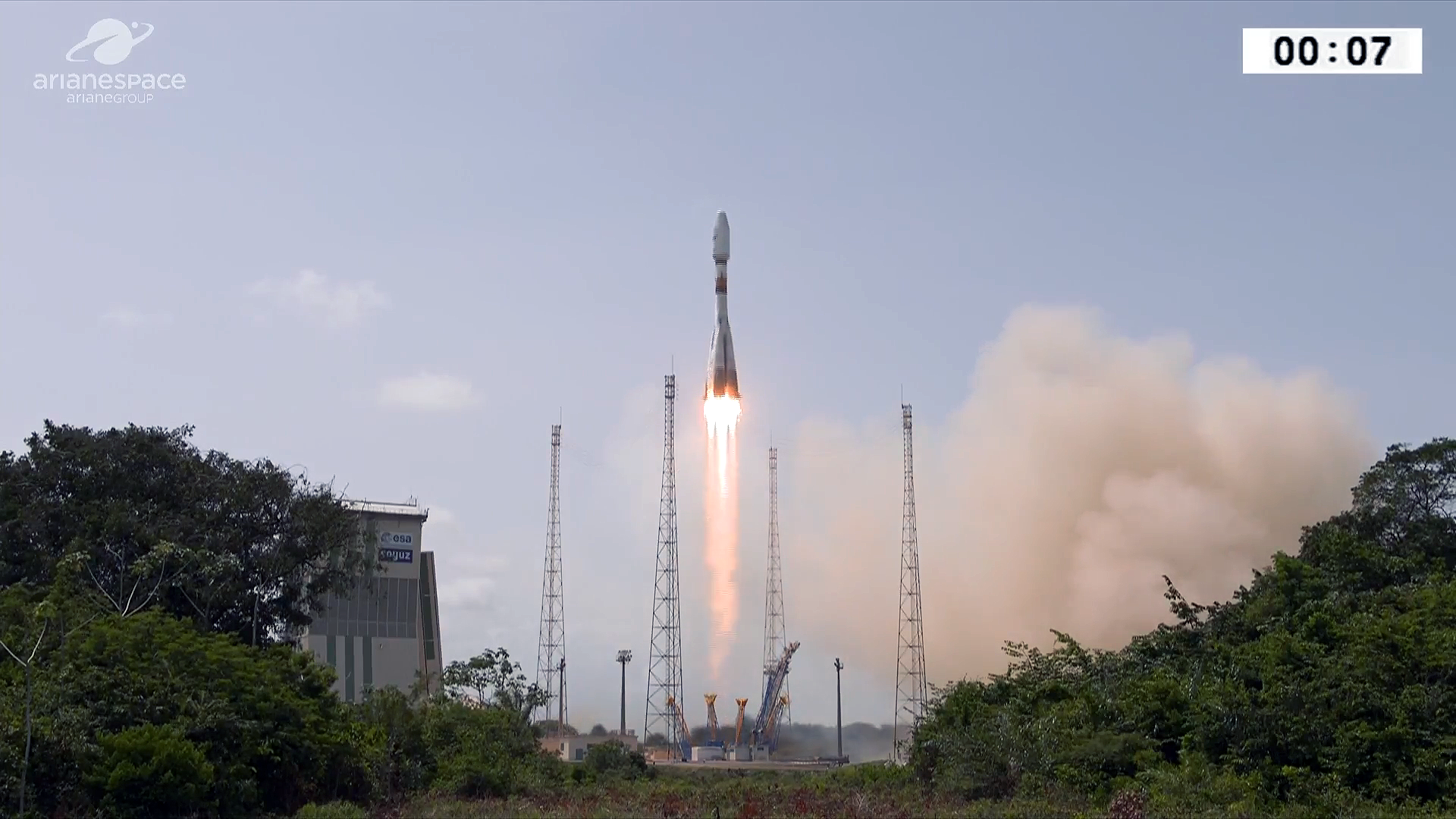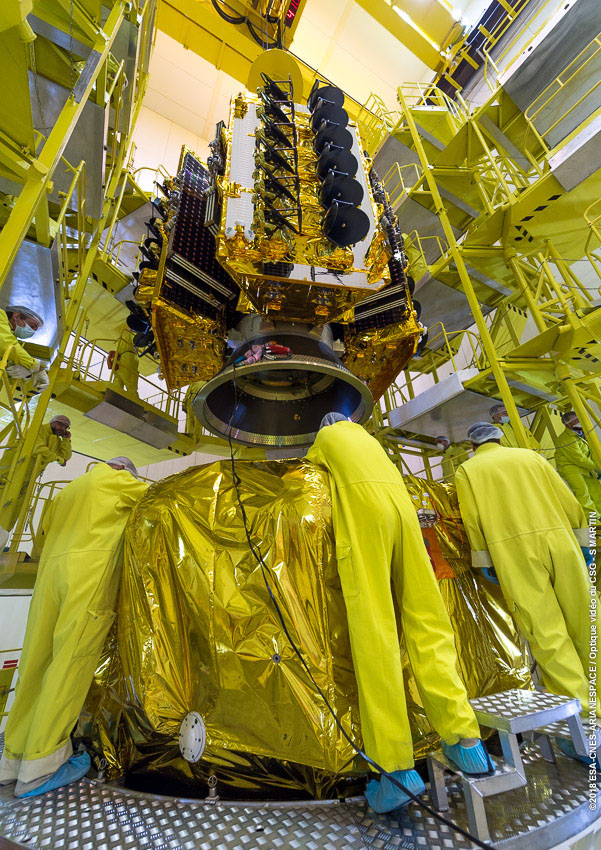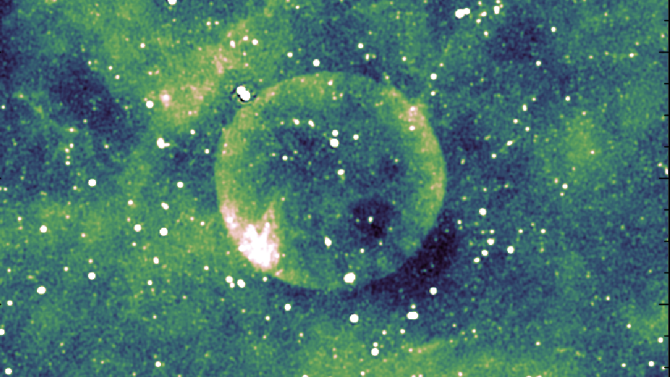Soyuz Rocket Launches 4 New O3b Communications Satellites Into Orbit
An Arianespace Soyuz rocket successfully launched a quartet of O3b communications satellites into orbit today (March 9) for the Luxembourg-based satellite operator SES Networks.
The Soyuz lifted off from the Guiana Space Center in Kourou, French Guiana at 12:10 p.m. EST (1710 GMT) after a 33-minute delay caused by bad weather. Despite the slow start, Arianespace had a flawless launch today. "The mission has been a total success," Martin Halliwell, the chief technology officer for SES Networks, said in a post-launch briefing.

The four satellites began deploying in pairs about 2 hours after liftoff. The second pair of satellites deployed at 2:32 p.m. EST (1932 GMT). Joining the 12 existing O3b satellites, the four new satellites entered a medium-Earth orbit (MEO) at an altitude of about 5,000 miles (8,000 km). [Satellite Quiz: What's Orbiting Earth?]
"Arianespace is delighted to announce that the four O3b satellites have been safely separated as planned on their targeted medium-Earth orbits," Luce Fabreguettes, executive vice president of Arianespace, said in the briefing.
Today's launch sent the fourth batch of O3b satellites into orbit, bringing the total number of satellites in the constellation to 16. Arianespace plans to launch the next four in 2019. "The new Ka-band satellites will join the existing O3b constellation to deliver high-speed connectivity to people and businesses in the growing mobility, fixed data and government markets," Arianespace officials said in a statement.

"The four O3b MEO satellites orbited on [flight] VS18 will enable SES Networks to offer more capacity, enhanced coverage, increased efficiencies and greater reliability while delivering carrier-grade services," like carrier Ethernet services, mobile network operators and internet- service providers, Arianespace officials said.
This was the second launch of the year for the European launch provider Arianespace — and a much-needed redemption following an anomaly during the last launch on Jan. 25, when the company lost contact with the upper stage of its Ariane 5 rocket shortly after liftoff. The three satellites aboard that rocket did reach orbit despite the anomaly.
Get the Space.com Newsletter
Breaking space news, the latest updates on rocket launches, skywatching events and more!
Today's launch was originally scheduled for Tuesday (March 6), but Arianespace postponed it to conduct extra checks. "This will enable additional checks as part of the resumption of launches from the Spaceport in French Guiana," Arianespace wrote in a mission update on Monday (March 5).
Arianespace is less than two weeks away from its next launch. On March 21, the company plans to launch an Ariane 5 rocket with two communications satellites one for Japan and one for the U.K.
Email Hanneke Weitering at hweitering@space.com or follow her @hannekescience. Follow us @Spacedotcom, Facebook and Google+. Original article on Space.com.
Join our Space Forums to keep talking space on the latest missions, night sky and more! And if you have a news tip, correction or comment, let us know at: community@space.com.

Hanneke Weitering is a multimedia journalist in the Pacific Northwest reporting on the future of aviation at FutureFlight.aero and Aviation International News and was previously the Editor for Spaceflight and Astronomy news here at Space.com. As an editor with over 10 years of experience in science journalism she has previously written for Scholastic Classroom Magazines, MedPage Today and The Joint Institute for Computational Sciences at Oak Ridge National Laboratory. After studying physics at the University of Tennessee in her hometown of Knoxville, she earned her graduate degree in Science, Health and Environmental Reporting (SHERP) from New York University. Hanneke joined the Space.com team in 2016 as a staff writer and producer, covering topics including spaceflight and astronomy. She currently lives in Seattle, home of the Space Needle, with her cat and two snakes. In her spare time, Hanneke enjoys exploring the Rocky Mountains, basking in nature and looking for dark skies to gaze at the cosmos.
